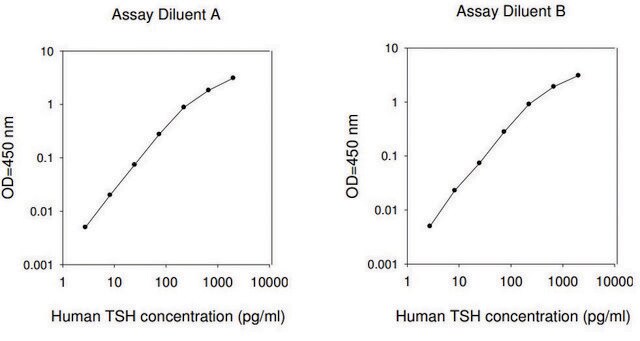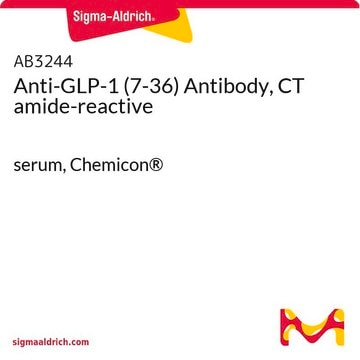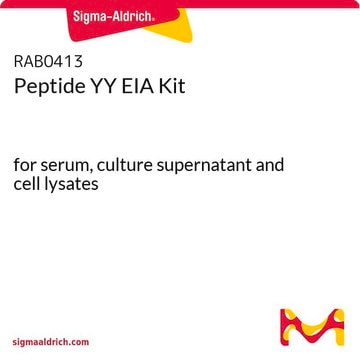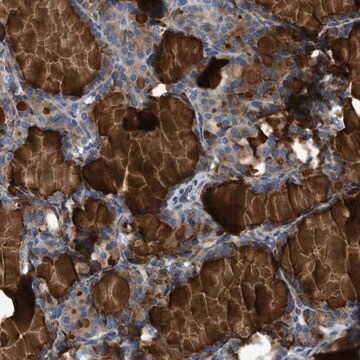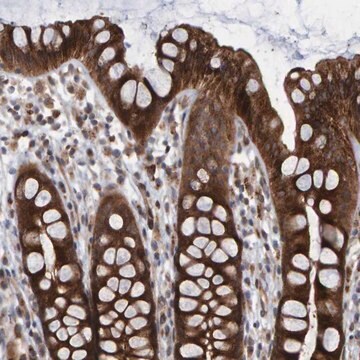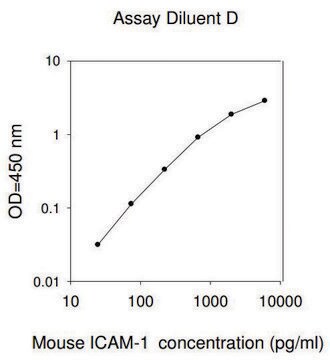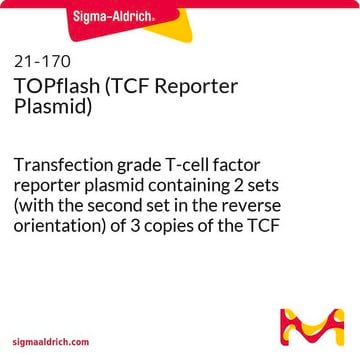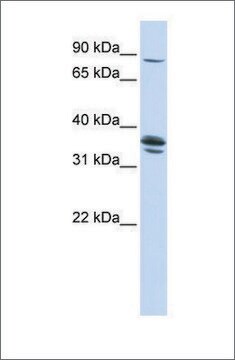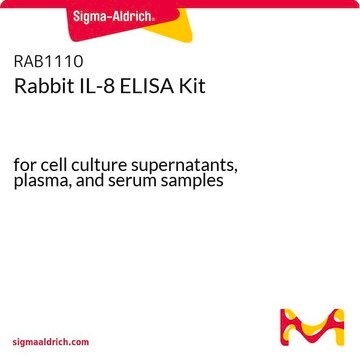GLP1A-35HK
Glucagon Like Peptide-1 (Active) RIA
About This Item
Polecane produkty
klasa czystości
for protein analysis
Poziom jakości
opis
ED<sub>80</sub> = 28 ± 7 pM ED<sub>50</sub> = 82 ± 10 pM ED <sub>20</sub> = 241 ± 24 pM
analytes available: Glucagon Like Peptide-1
10-500 pg/mL (standard curve range)
Właściwości
accuracy 101% serum sample concentration 1:500 dilution–100 ng/mL standard
accuracy 40.7 ± 2.9%
reaktywność gatunkowa
rat, human, mouse
metody
radioimmunoassay: suitable
numer dostępu UniProt
metoda wykrywania
radioactive
Opis ogólny
SIZE: 180 amino acids; 20909 Da
SUBCELLULAR LOCATION: Secreted.
TISSUE SPECIFICITY: Glucagon is secreted in the A cells of the islets of Langerhans. GLP-1, GLP-2, oxyntomodulin and glicentin are secreted from enteroendocrine cells throughout the gastrointestinal tract. GLP1 and GLP2 are also secreted in selected neurons in the brain.
PTM: Proglucagon is post-translationally processed in a tissue- specific manner in pancreatic A cells and intestinal L cells. In pancreatic A cells, the major bioactive hormone is glucagon cleaved by PCSK2/PC2. In the intestinal L cells PCSK1/PC1 liberates GLP-1, GLP-2, glicentin and oxyntomodulin. GLP-1 is further N-terminally truncated by post-translational processing in the intestinal L cells resulting in GLP-1(7-37) GLP-1-(7-36)amide. The C-terminal amidation is neither important for the metabolism of GLP-1 nor for its effects on the endocrine pancreas.
SIMILARITY: SwissProt: P01275 ## Belongs to the glucagon family.
MISCELLANEOUS: In the glucagon antagonist, His-53 and Phe-58 are missing. This antagonist has been successfully utilized to reduce glucose concentration in vivo."
Zastosowanie
Oświadczenie o zrzeczeniu się odpowiedzialności
Hasło ostrzegawcze
Danger
Zwroty wskazujące rodzaj zagrożenia
Zwroty wskazujące środki ostrożności
Klasyfikacja zagrożeń
Acute Tox. 3 Dermal - Acute Tox. 4 Inhalation - Acute Tox. 4 Oral - Aquatic Chronic 2
Kod klasy składowania
6.1C - Combustible acute toxic Cat.3 / toxic compounds or compounds which causing chronic effects
Certyfikaty analizy (CoA)
Poszukaj Certyfikaty analizy (CoA), wpisując numer partii/serii produktów. Numery serii i partii można znaleźć na etykiecie produktu po słowach „seria” lub „partia”.
Masz już ten produkt?
Dokumenty związane z niedawno zakupionymi produktami zostały zamieszczone w Bibliotece dokumentów.
Nasz zespół naukowców ma doświadczenie we wszystkich obszarach badań, w tym w naukach przyrodniczych, materiałoznawstwie, syntezie chemicznej, chromatografii, analityce i wielu innych dziedzinach.
Skontaktuj się z zespołem ds. pomocy technicznej
